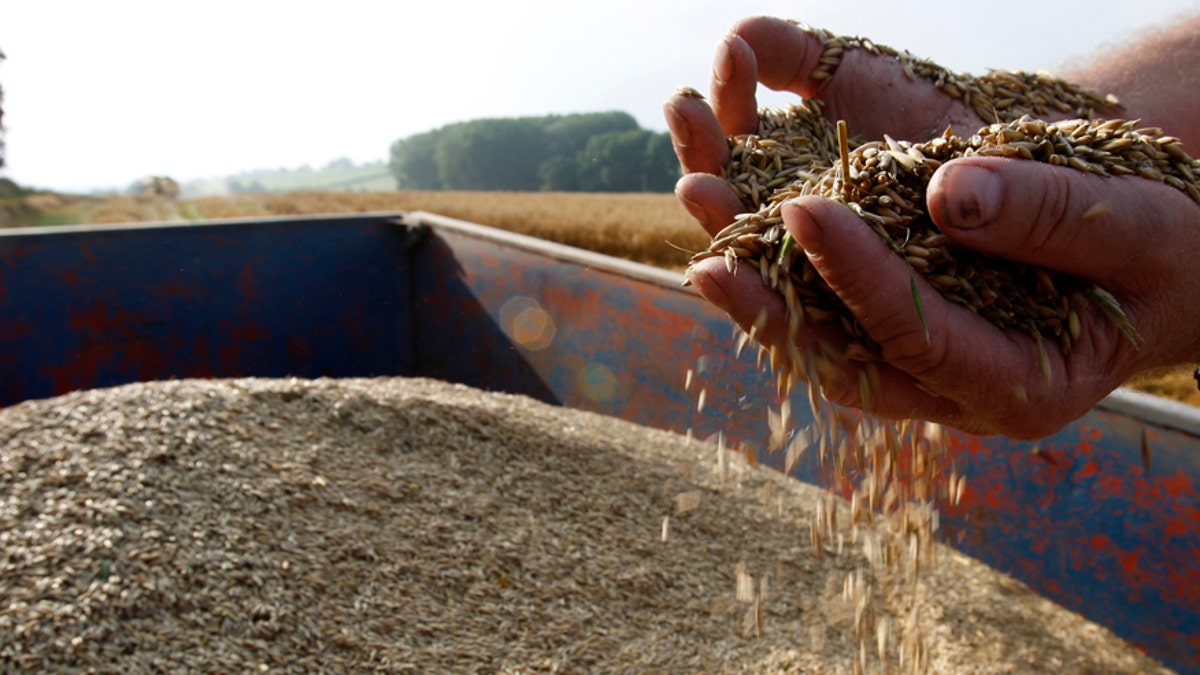
File photo - A farm worker inspects oats in Walton on the Wolds, central England, August 30, 2008. (REUTERS/Darren Staples)
Some like it hot, some like it cold, and it looks like they probably liked it about 32,000 years ago.
An ancient grinding stone found in the Grotta Paglicci, Apulia, in southern Italy, has hit the news after scientists discovered that some of the debris on the stone turns out to be none other than oatmeal. The stone harkens back to the Gravettian era, a late Paleolithic culture, known for its tool making. It was recovered in the 1950s, but it wasn’t until recently that Marta Mariotti Lippi and team at the University of Florence in Italy studied the debris and found the oat fragments.
Related: Mass grave of new human relative discovered in South Africa, claim scientists
The team determined that the Gravettian people heated the grains before grinding them with the stone in order to preserve and prep them for processing. The resulting powder was then made into bread and oatmeal.
The Grotta Paglicci, Apulia served as home to ancient hunter-gatherer cultures anywhere from 34,000-32,000 years ago, and has produced artifacts that include mural paintings with animals and etchings on bones. As for the stone, Lippi says the team intends to continue studying the debris to find out what else prehistoric cultures dined on.
Matt Pope, an archaeologist with University College London, told Herald Scotland, “There is a relationship there to be explored between diet, experimentation with processing plant food and cultural sophistication. We’ve had evidence of the processing of roots and cattails, but here we’ve got a grain, and a grain that we’re very familiar with.”








































